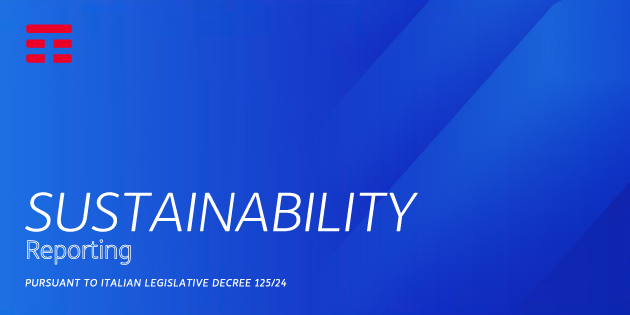Sustainability is at the core of our plan
Our ESG (Environmental, Social, Governance) development objectives represent the core of our business plan, and translate into a programme of activities that will lead us, among other things, to become carbon neutral by 2030, increase our eco-efficiency by 50% and reduce indirect emissions by 70% by 2025. We are pursuing this programme with tenacity and constantly monitoring its progress, and it is appreciated by our institutional investors, who already for the most part integrate ESG criteria into their decision-making processes.
This is why, as regards environmental protection, we offer services and products to reduce the ecological footprint of citizens and businesses. As regards our commitment to society, we continuously work to overcome the geographic digital divide and to contribute to social and digital inclusion. We have an advanced system of corporate governance, policies and procedures for the optimal management of our internal processes.
Our objectives and the ways in which we achieve them will help to create a more sustainable future for everyone: through our commitment to infrastructure, which will encourage the digital development of the country and help us to do more and to do it better with lower resource requirements; through our commitment to customers, who we provide with more effective, efficient and green services and products; through our commitment to the development of skills, in particular digital skills that we help to disseminate throughout the population with ‘Operazione Risorgimento Digitale’ initiatives.
The objectives of the first TIM Sustainability Bond
This scenario incorporates the first TIM Sustainability Bond of 1 billion euros. -. The funds raised by this bond issue, which was highly appreciated on the market, will be used in particular to increase TIM's eco-efficiency, starting with that of our fixed and mobile network, by moving from copper to fibre optic and 5G, and that of our Data Centers for cloud development.
Transforming the network will benefit both our customers with the quantity and quality of the services they will be able to use, and the environment, as energy consumption will drop by improving network performance. The FTTC technology, with fibre optic reaching street cabinets, can in fact improve the network’s eco-efficiency by 60% compared to the ADSL, while the FTTH, with fibre optic to single buildings, will improve it up to 20 times.
The first Sustainability Bond will also sustain our commitment for inclusion and the digital culture, helping to bring connectivity all over Italy, thereby eliminating the digital divide still affecting less urbanised areas, and speeding up the spread of digital skills.








